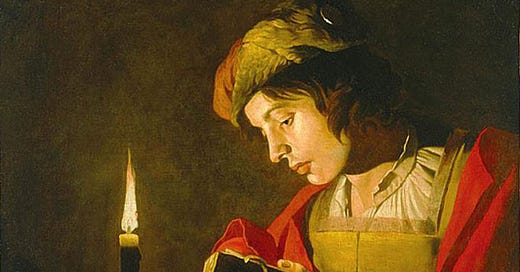How to run a KUP game #7 - Secondary game options
The aspects of the game that the GM needs to be aware of are not only those that relate to the players' play and their characters' situations. There are several factors that are often overlooked, but which contribute greatly to the creation of the overall game, the 'stage' on which the characters move. Let us take a closer look at what they are.
The weather is an element that is not given its due weight; there are situations where the results are turned upside down if the weather is taken into account: a group of characters will have serious problems following the tracks of other characters in torrential rain... the real point is that it is not strictly necessary to define the weather always and in all circumstances, but it is good that players do not take it for granted that it will never affect the situations their characters experience.
Money management: there are players (and GMs!) who love this aspect and could never play the game without relying on the moments when it is necessary to manage their assets and make them profitable, like a sort of 'medieval finance simulator'... there are other players, on the other hand, who have no idea how many coins their character has in his pocket and play as if it were all free. As the ancients used to say in media stat virtus: for this purpose, to slow down the tycoons of fantasy economy and to encourage the financially distracted, I have deployed a simple system that can be run by the GM in offline mode, that takes only a few minutes, and that allows the management of the characters' financial resources to be given the right weight (neither too much nor too little). This method is not included in the core rules because I believe that each GM (and player) must define the best solution without the constraints imposed by the rules; the method below is therefore one option among many that can be adopted (I will explain the method in the next post).
The possible crimes that can be committed during the game. After all, adventurers cope with violence, desecration, murder, theft and other types of crime on an almost daily basis. While it is true that some of these would not have been considered crimes in the real Middle Ages, it is also true that these aspects cannot always be overlooked. The GM can 'exploit' these situations to create new ones within the campaign and add a particular flavor to the game that is not often considered (especially in published adventures). The player must not assume that if his character is considered a 'hero', then he is immune to all laws...
About society and its values, demographics and the cultures: in this area, the GM often falls into the trap of 'thinking', 'moving', 'making' and 'reacting' NPCs according to modern principles and logic; even if a fantasy setting could, by definition, reproduce all aspects of modern society. It is possible to adopt distant criteria from ours and 'surprise' the players with situations that are not the result of modern rationality (ahemm…). As I quote in a previous post, uncertainty in the game is the element that makes it more attractive, and in this case it can be so: removing the certainties of the context in which the character moves foster the player to discover more about the world in which the character lives. The GM must pay particular attention to the 'non-modern' coherence of the setting, in terms of the encounters management with NPCs (i.e. social relations) or the presence of plausible monsters (i.e. not random choices, but consistent with the rest of the setting).
The recommendation for the GM is to focus on one of these aspects within a single session rather than trying to cover them all at once: the prep for this ‘secondary’ game option is not heavy compared to the results they yeld. In this way it is possible to give the game an extra twist and make it special each session without too much stress. Changing the focus from session to session can be fun for the players and a source of inspiration for the development of the game.




